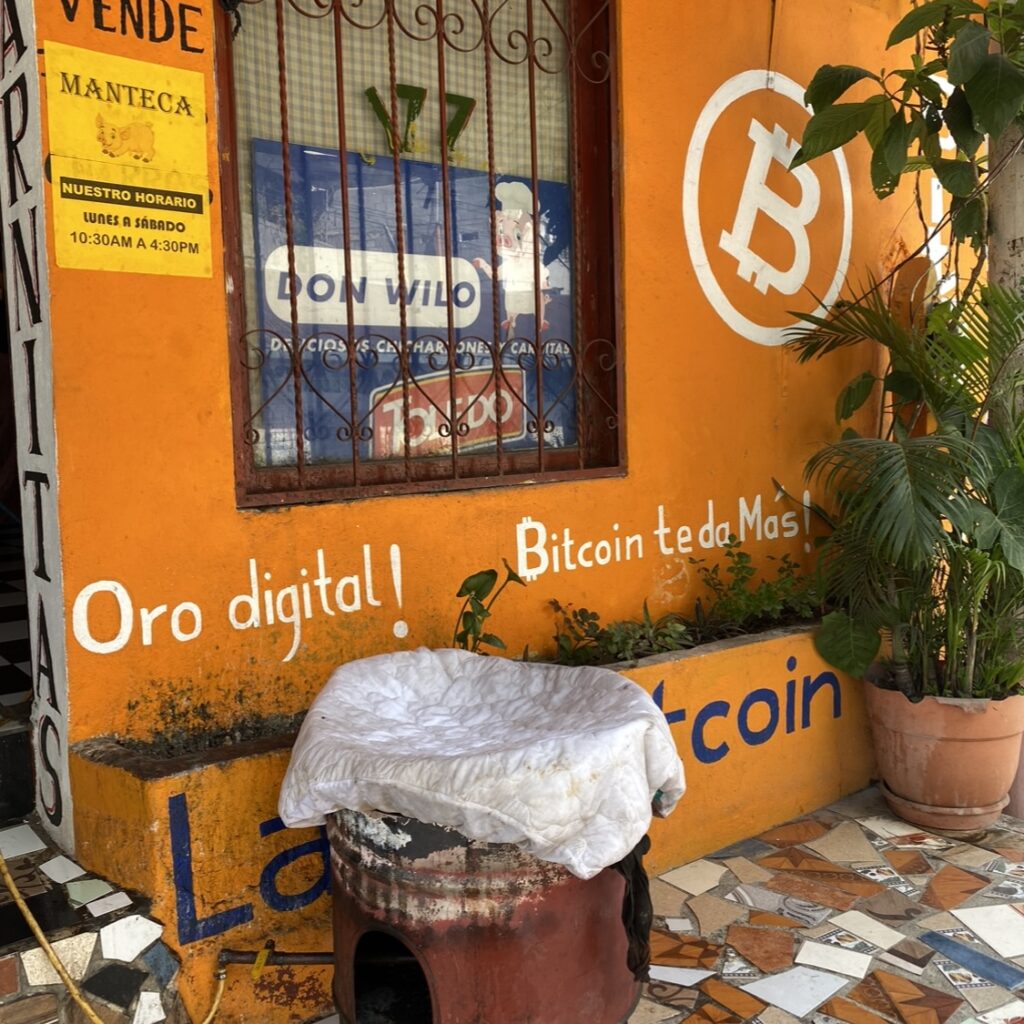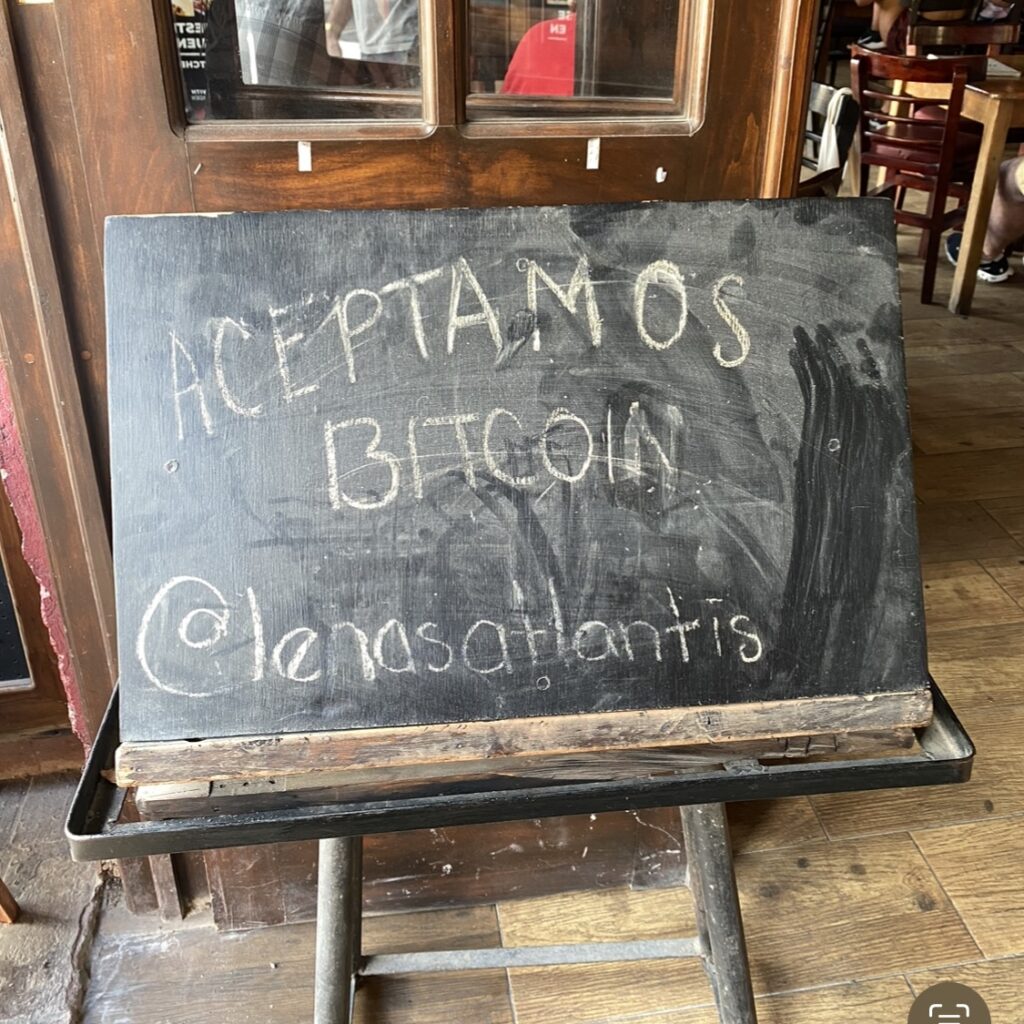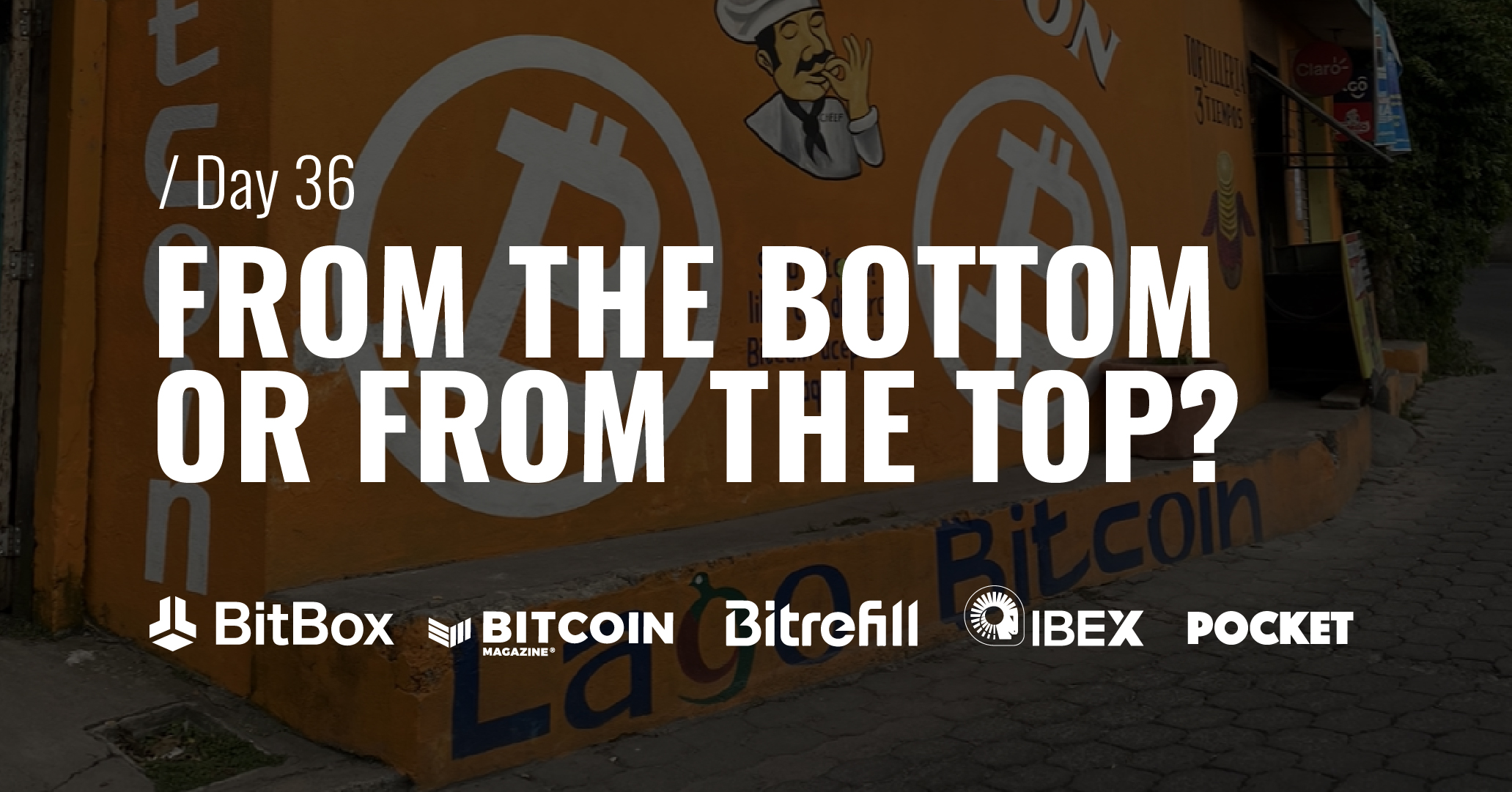

The great curiosity that grips us after leaving El Salvador and venturing into the rest of Central America is trying to understand what people think about Bitcoin in countries where there has been no government propaganda, no media coverage, no bad state wallets to complicate things, and no squealing pseudo-gurus burning dollars and babbling nonsense. Countries where, therefore, adoption is not happening by decree, but solely and uniquely through the hard work of companies that believe in Bitcoin and build on it and all those people who welcome it into their lives because they see it as a real opportunity. To attract more customers perhaps or to boost tourism.
The question we would like to try to answer is: is bottom-up adoption better than the top-down adoption theorized by President Bukele?
Needless to say, it is obviously too early to make assessments, however, a rough idea we already have, and it is surprising. In these first few days in Guatemala we have met many people, for example, who work with Bitcoin. The very young sales manager of the largest local company offering lightning payment services, a man of incredible enthusiasm and energy, who would be able to convince even my father to have his retirement paid in Bitcoin. A man who gets up every morning with a smile on his face because he believes deeply in what he does. A born dragger who has chosen to put his talents at the service of our revolution (and the company he works for of course). So many merchants who first chose to accept Bitcoin as a form of payment because it is faster, safer and cheaper than credit cards. People who when you walk into their little store because you saw the sign “acceptamos Bitcoin” and ask if they really accept it, they turn a toothy smile and say yes with a pride never seen in most merchants in El Salvador. Employees who when it comes time to pay take their tablet or smartphone with incredible security, open the wallet and with four taps show you the right QR code. Amazing awareness and knowledge of the technological tool.
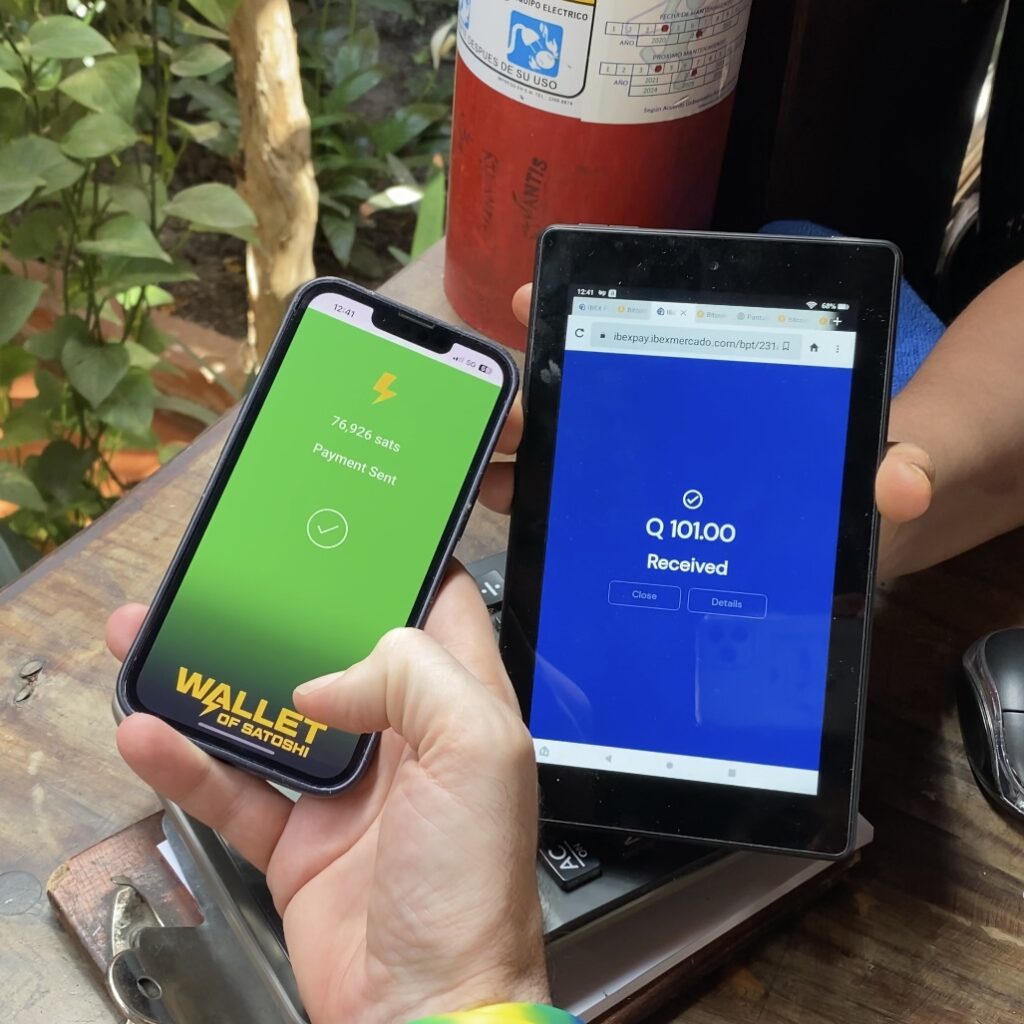
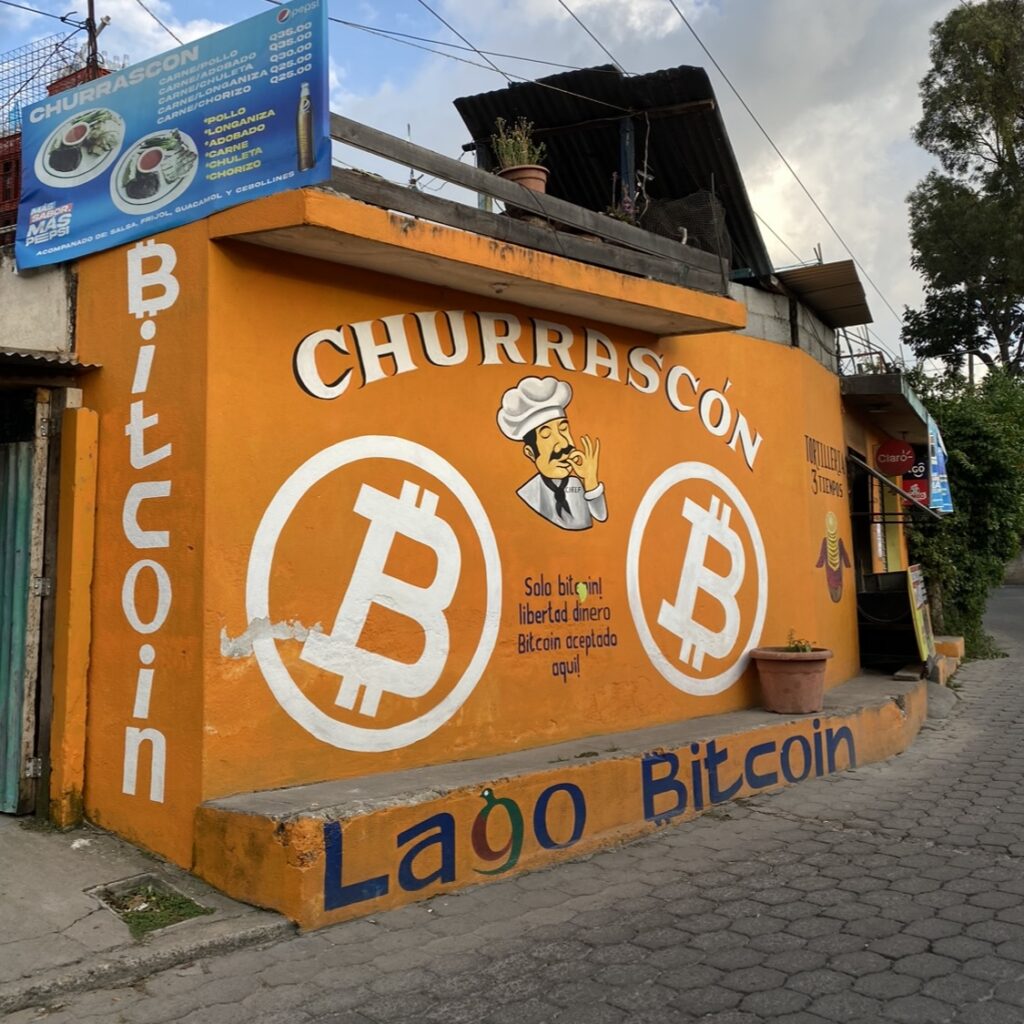
Needless to say, of course, this is not always exactly the case. There are those who panic, those who tell you that at this moment they cannot accept them because it is the owner who has the smartphone on which the wallet is and at this moment is absent, those who tell you that today “Bitcoin does not work” and therefore, they are desolated, but they can only accept cash.
In short, there is everything and more, but the feeling we have is that there is a lot of curiosity in the streets. When we stop to talk about Bitcoin with locals we always sense a keen interest. They often ask us questions, wanting to know more. Is it true that it is free? Really with the right application even if you pay in Bitcoin I can receive quetzales or dollars? No eye rolling, huffy faces or politically aligned answers like “I don’t care because I hate Bukele.”
Here we are only a few hundred kilometers further north than El Salvador in short, but it feels like we are on another planet.
